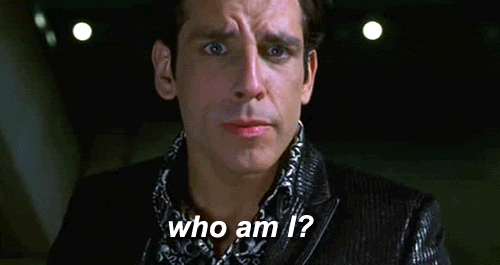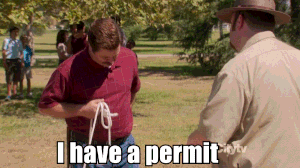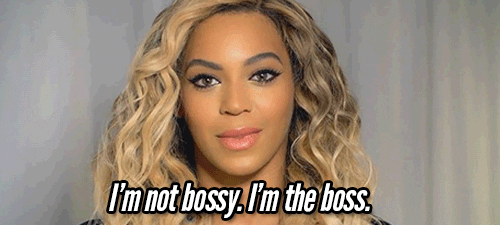Why I'm Still a Christian
Guest post by Jenai Auman for After Faith, August 13
Hey! Welcome to After Faith, where I (Joy Vetterlein) share a weekly thought on living a post-evangelical lifestyle in a brain formed by evangelicalism.
This August I’ve invited four of my favorite thinkers to share their thoughts on life after faith, and can’t wait for you to read today’s.
Since deconstructing, I have developed the highest value for spiritual autonomy. While my story and journey have led me to decide that leaving Christianity is the right thing for my soul, I have reiterated again and again my belief that for some, thoughtfully remaining within Christianity can absolutely be the right path for them.
Jenai Auman is one of those people. Since I know many of my readers are somewhere between “definitely Christian” and “definitely not”, I asked Jenai to share why, though faced with the worst that Christianity has to offer, she has chosen to remain a part of the global Christian church.
If you have a hard time understanding why some people stay in the faith, if you are still figuring out how the word “Christian” applies to you, or if you are feeling led to remain in Christianity as Jenai has, I hope you’ll appreciate her words below and take them into consideration.
Enjoy.
Before finishing my degree in behavioral health, my initial major was in chemical engineering. During my first semester of college, my chemistry lab professor started class by speaking on diethyl ether. She used it as an example of lab safety, saying, “Diethyl ether is highly volatile. If you drop it, you will create a hazard. If you hold it near a flame, it will explode. Pretend every chemical you are working with is as volatile as diethyl ether so you are cautious about proper handling.”
A decade plus later, entering my former church building to start my workday was like walking around diethyl ether. It was three years of work packed with high volatility. You keep a wide berth from those most volatile. And you either avoid the flame that was our senior pastor or you stroke his ego enough to keep his flame low.
Having to survive your church and the explosions within will make you react. In highly volatile emotional spaces, you may even be labeled abrasive and harsh as you cry out because you refuse to grin and bear it.
I was called abrasive and harsh, and I couldn’t take it. I told my pastors, “You don’t come out of Chernobyl unchanged.”
Despite my explosive encounter with what I’ve come to call Caustic Christianity, I still consider myself a part of the global church today.
The reason why is two-fold. First, my deconstruction and healing journey requires decolonization. For those unfamiliar, decolonization is the work of removing white supremacist ideology (which is intricately woven with that of white Christian hegemony or Christian dominance). The explosions within my church were not race-specific, but they were born from a culture soaked in bias born from white Christian hegemony, which include racism, patriarchy, and abuse of power. Christian hegemony oppresses everything, but especially the lives of those a part of the Black, Indigenous, and People of Color (BIPOC) community. As a Filipina American woman who worked on staff at a church primarily serving the cultural majority, my reclamation includes living a life no longer defined by white Christian hegemony. I decolonize not only my life, but also my faith. Caustic Christianity does not get to hold my faith captive.
The second reason I still consider myself a part of the global church is that I have weathered causticity both within and without Christian spaces. I grew up as a daughter to a Filipina mother who immigrated to a predominantly white area of Texas. My family home is a small ways south of Jasper, TX, where in 1998 the horrific race-related murder of James Byrd Jr. occurred. I was also raised in a home with an agnostic, mentally unwell, traumatized white father whose abuse toward my mother caused her to flee our home with myself and younger brother in tow. With zero support, we lived homeless.
Imagine an immigrant woman who spoke broken English living in her car with her two children in the Texas south. Can you imagine the lack of generosity and what survival required of her? If you can, you have a glimpse into my non-Christian childhood.
With the widespread of reporting of trauma in the Christian church and, by extension, Christian homes, I can see the harm I dodged by not being raised in the Christian faith. But my story being what it is, I am able to untangle Christ from the trauma I experienced.
I know with acuity that life outside of the church can be equally toxic.
My faith and theology have given me the framework I need to leave toxic spaces and walk my own exodus despite the context.
Some equate all of Christianity with toxicity. I believe in the agency of others so I don’t write to convince anyone otherwise. I also know that sometimes we need to let our grief speak blunt words as we detox. I do write to invite—to show that not all spiritual people are toxic. There are gentle sages of the faith working with the heart of Christ who do not encourage sameness, but peace. Unfortunately, these sages simply aren’t as loud or as listened to as Caustic Christians.
Generalizing toxicity in the church does risk dismissing and othering the experiences of marginalized people of faith.
Many BIPOC churches have been formed outside of white Christian hegemony. Many found healing and freedom in Christ after a history laden with oppression, dehumanization, and slavery. There are also mainline denominations that affirm the humanity of all.
I am a member of the global church because I believe in the work of those forsaking toxicity to bestow shalom.
I believe Christ’s vision for the Body of the Christ is still the best hope for liberation in a culture building Babels. I believe weirdos, freaks, scapegoats, sacrificial lambs, and those othered in faith are the peculiar people God calls.
He gifts the othered to bless the nations. Othered people—those marginalized because they were unwilling to conform—are those who offer radical hospitality to people not like them. Othered sages have the wisdom to forsake a culture of sameness, even in deconstruction spaces.
If you’ve had to walk away from the entirety of the Christian faith to heal, I understand and lament with you. I hope you find a safe landing place to work out all the ways you’ve been hurt, harmed, and marginalized. I also hope that, if you do choose faith again, you find a few writers, artists, and spiritual companions working to build something kinder and more gentle. I hope you find people who refuse to construct new pyramids.
I am a member of the global church because I remember my story is held by the scarred hands of the Othered Christ. He sees all the ways we have been pushed out and forsaken. In fact, Jesus was (and is) a human who fought the things many of us are fighting today.
My healing and reclamation means I no longer play with the toxic ether people put in my hands.
I pursue peace.
Jenai Auman is a Filipina writer, artist, and author of Othered (2024). She uses the wisdom of her experience, education, and training to extend hope and provide language to those hurt, harmed, and marginalized in faith spaces. You can connect with her everywhere on social media (@jenaiauman) and read more from her Othered newsletter at jenaiauman.substack.com.








Decolonizing faith is something we're not talking about enough, so glad you shared that.
Really appreciate this perspective. So often the deconstruction movement is not decolonized and it ends up dismissing the “global church” (I like that phrase!)! Thank you for writing this!